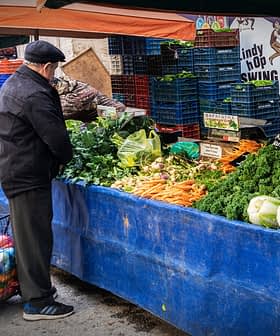A recent study under the title “Greece 10 years ahead” aspires to set the foundations for the economic recovery of the teetering country.
The study, produced by McKinsey management consulting firm in Athens, proposes a ‘National Growth Model’ that prioritizes what has to be done and in which sectors of the economy. Tourism and energy are considered key sectors. Equally, agriculture is not a small cog in a large wheel but rather a big player that will yield substantial income and create job positions.
When the term ‘agriculture’ is used in Greece, one thing certainly comes in mind: olives and olive oil. Amongst other products (tomatoes, feta cheese, peaches and saffron) that can be promoted and sold abroad in abundance, extra virgin olive oil already holds an exceptional position as a top quality product. The study states the well-known fact that 60 percent of the exported Greek olive oil is sold to Italy in bulk and not standardized.
This immediately creates a ‘black hole’ in the oil market of the 50 percent markup of the final product. Bulk oil is sold for €2.1 per kilo to Italy and Italy sells its standardized oil (which contains the Greek oil as well) for €3.1 per kilo. As a result, Greece “does not capture its fair share” in olive oil exports according to the study.
To reverse the situation and be able to exploit all possibilities, the study defines four major strategic directions. When it comes to olives and olive oil, the strategies to follow can be clearly articulated:
1. Identify the most important export markets and give them priority: Size, growth potential and receptiveness to products from Greece should be the key factors, in conjunction with retailer presence and easiness of commercial transactions. For olive oil, the target markets could be Germany, Austria, Italy, Russia and North America.
2. Add value to exported olive oil and olives: Sell standardized and branded olive oil, create a global certification mechanism, pursue innovation. Instead of just putting the famous Kalamata olives in a jar, create variations of the product, such as ready-to-eat, ready-to-cook, or convenience packaging.
3. Increase exported quantities and cut costs: Create 2 to 3 new processing and packaging units of large scale, located close to raw material supplies to avoid transferring costs.
4. Strengthen access to the target markets: Establish a mega company via public – private partnership (PPP) to cope with the occurring problems when trying to access the target markets and create and maintain wholesaler and retailer networks. The company should be an umbrella organization for all agriculture products.
It sounds like the prominent products of Mother Earth can be the flagship of the recovery of Greece and it is a big opportunity to overcome many ankylosis of the past and make a big leap forward. According to the report, Greece should quickly put olive oil and olives along with other products on the development chessboard and thus make all the difference.









